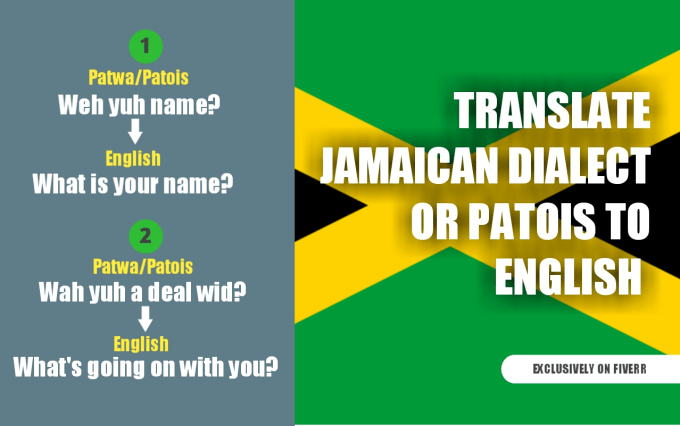

But while it’s certainly true that bilingual Patois/English speakers may incorporate Patois into their English as slang or make grammatical errors because English isn’t their first language, Patois is a different (though related) language that isn’t fully comprehensible by monolingual English speakers.

Patois is sometimes mistakenly characterized as ungrammatical English or slang or just a thick accent. But in informal settings, Jamaicans - especially lower-class, rural, and older Jamaicans - actually don’t speak English, they speak an English-derived creole called Patois. The country’s major newspapers are written in English, government officials give their formal speeches in English, and English is the language of instruction in formal education.

I’m in Jamaica right now, and the formal official language here is, of course, English. I don’t like to read about politics in my downtime and instead tend get interested in random non-political topics.įor a while I was very into popular works on linguistics, but because I have politics lurking in my brain even when I don’t really want to, I often found myself noting parallels between the history of language and modern political issues - in particular, the interesting difference between how languages evolve when (like most languages) they are spoken primarily in insular communities and how they evolve when they are spoken by large, diverse groups. Fresh episode of Bad Takes is out, about the theory that Joe Biden could and should smoothly step aside in 2024.


 0 kommentar(er)
0 kommentar(er)
